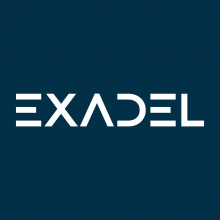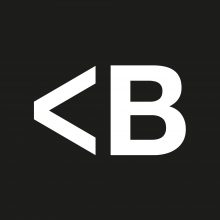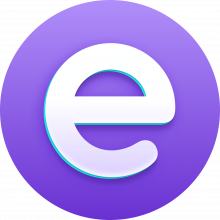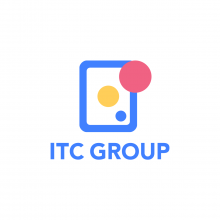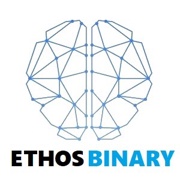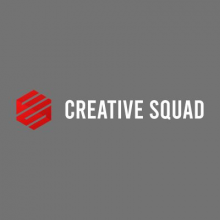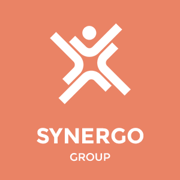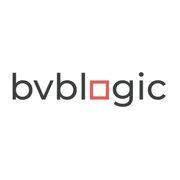
There are 72 Companies in Toronto
that provide Angular Development Services!
Toronto is the leading tech hub in Canada with more than 640 registered IT companies that provide a wide range of software solutions for both internal and external markets. The high level of tech and IT education and log tech tradition made the city a global tech hub and new media development.
Discover Top IT Companies in Toronto specialized in Angular and other related services. Find the best IT service providers for your projects.
Angular (formerly AngularJS) is a popular open-source web application framework maintained by Google and a community of developers. It's used for building dynamic, single-page web applications (SPAs) and web-based applications in general. Angular provides a structured and organized way to create complex web applications by extending HTML with additional features and enabling the development of interactive, responsive, and maintainable front-end web interfaces.
Handpicked companies • No obligation to hire • 100% risk-free
Featured Companies in Toronto
This month, the following Angular Development companies managed to provide an outstanding service and support. It's worth taking a look.
End to End Digital Solutions under one roof - Web Design & Development | Content | SEO | PPC | Social Media — Walk the Web Wisely with Wisitech
Explore Top Angular Development Companies in Toronto
Technology with beauty and power. Software brilliance for visionary companies.
Services:
Euristiq is a software outsourcing company, an AWS Advanced Partner, and an ISO 27001:2022 certified provider.
Partner with a top digital marketing agency in Karachi, Pakistan to increase brand awareness, reach your target audience & grow your business online.
Services:
HUMAN+TECH | Consulting ★ Development ★ Talent
Digital Transformation Services for Your Business
Creative Squad is the company that we have had the honor to represent, not about us.
Services:
Synergo Group delivers tailored AI, cloud, and data governance solutions, reducing costs for fintech, healthcare, and compliance-driven industries
Award-Winning Toronto Web Design Company, Online Marketing and Brand Agency. Creating beautiful, high-converting sites & strategic online campaigns.
Services:
Canadian IT firm with 50+ experts offers web app development, staff augmentation.Proficient in Java, JavaScript, DBs, and CI tools. Focus on quality.
Canadian Software Agency builds iOS & Android mobile apps, and custom software applications.
Services:
Web Design, Development and Internet Marketing
Services:
Portalnet is a Software Development & A Digital Marketing Agency that serves a diverse client base.
bvblogic is a technology company with a passion for innovation, which creates reliable and efficient IT products and solutions, solves globally import...
Your go-to digital marketing agency for impactful collaborations
Services:
Filter Angular Development Companies in Cities near Toronto
Dive deeper and find the company you need close to you or, from a specific city you prefer. Some of the best companies come from smaller places
Find more Angular Development companies around the world
TechBehemoths is the world's most advanced and user-friendly platform to match IT Companies with real clients without hustle.
Tech Industry in Toronto: City Profile
Toronto is the leading tech hub in Canada with more than 640 registered IT companies that provide a wide range of software solutions for both internal and external markets. The high level of tech and IT education and log tech tradition made the city a global tech hub and new media development.
By 2021, there are more than 90,000 IT professionals working in Toronto and delivering services to companies, corporations, and international institutions. The entire IT sector contributes to the local economy with more than $8B annually, and made the sector one of the best-paid in the region, and probably in the country.
According to Toronto.ca, the job distribution in the city is as follows: More than half of the IT employees are engaged in delivering Computer System Designs and related services (60.2%). Almost a quarter work in the field of Telecommunications (21.2%). The other jobs in the field are divided into the following sectors: Computer and Electronic Product Manufacturing (7%), Software Publishers (3%), Electronic and Precision Equipment Manufacturing (1.6%), and Internet Providers (1.5%).
Toronto also hosts tech giants and international corporations that invest in the IT sector, providing jobs for skilled professionals. Companies such as Bell, Cisco, Alphabet, IBM, Microsoft, and Oracle are active in the IT field and are among the biggest players and creators of startup accelerator programs, incubators, partnership programs, and more.
According to the Founders Institute research, the leading accelerators and incubator programs in Toronto are Creative Destruction Lab, EON Accelerator, Founder Institute Toronto, gBETA Toronto, Hatchery, and, Idea Boost.
On average, the tech salary in Toronto is $100K/year (before taxes) which is around the average per area - $106K/year. Nonetheless, this is a good indicator for one of the leading tech hubs in North America. This makes not only Toronto a highly attractive city for IT investments, but also the entire region.
All in all, Toronto continues to be one of the leading cities in tech and IT and has the potential to become a new entry in the top 5 North American tech cities.
As of September 2021, there are 700+ registered and active IT companies from Toronto on TechBehemoths.
What is Angular and what are its benefits for your projects?
Angular (formerly AngularJS) is a popular open-source web application framework maintained by Google and a community of developers. It's used for building dynamic, single-page web applications (SPAs) and web-based applications in general. Angular provides a structured and organized way to create complex web applications by extending HTML with additional features and enabling the development of interactive, responsive, and maintainable front-end web interfaces. Here are some key aspects and concepts of Angular:
-
Component-Based Architecture
-
Templates
-
Directives
-
Dependency Injection
-
Services
-
Routing
-
Observable and RxJS
-
Modules
-
Testing
-
Cross-Platform
Angular's structured approach, strong tooling, and vibrant ecosystem of libraries and extensions make it a powerful framework for building modern web applications. It is particularly well-suited for large and complex projects where maintainability and scalability are crucial.
Companies may choose Angular over other front-end frameworks for their projects for a variety of reasons, depending on their specific needs and priorities.
-
Google Backing: Angular is developed and maintained by Google. This association often gives companies confidence in its long-term support, stability, and continuous improvement. Google's involvement is seen as a sign of reliability and commitment to the framework.
-
Mature and Established: Angular has been around for a while and has a strong track record of being used successfully in large-scale enterprise projects. It has a well-defined architecture and best practices, which can be beneficial for maintaining and scaling applications over time.
-
TypeScript Support: Angular is built with TypeScript, a statically-typed superset of JavaScript. TypeScript provides better tooling, code maintainability, and catches errors at compile time, which can reduce bugs and enhance code quality, making it attractive to companies that prioritize robust code.
-
Full-Featured Framework: Angular provides a comprehensive set of tools, libraries, and features out of the box, including routing, form handling, HTTP client, and more. This can save development time and effort compared to integrating multiple third-party libraries in other frameworks.
-
Two-Way Data Binding: Angular offers powerful two-way data binding, which allows for automatic synchronization between the data model and the view. This feature can make it easier to develop interactive and responsive user interfaces.
-
Large and Active Community: Angular has a large and active community of developers and a wealth of resources, including documentation, tutorials, and third-party libraries. This can be beneficial for finding solutions to common problems and getting support when needed.
-
Enterprise-Ready: Angular provides features like dependency injection, modularity through modules, and a strong emphasis on testability. These characteristics are well-suited for building robust and maintainable enterprise-level applications.
-
Strict Coding Standards: Angular enforces a set of coding standards and best practices, which can lead to more consistent and readable code. This can be important for companies with multiple developers working on the same codebase.
-
Cross-Platform Development: Angular can be used for building both web and mobile applications. Companies looking to develop applications for multiple platforms may choose Angular for its ability to share code between web and mobile apps using technologies like NativeScript or Ionic.
-
Integration with Backend Technologies: Angular can easily integrate with various backend technologies and APIs. This makes it suitable for projects where the front end needs to communicate with different types of server-side applications.
-
Security Features: Angular provides built-in security mechanisms to help prevent common web vulnerabilities like Cross-Site Scripting (XSS) and Cross-Site Request Forgery (CSRF). This can be crucial for projects with high security requirements.
-
Ecosystem and Tooling: Angular has a rich ecosystem of tools, extensions, and IDE support, including Angular CLI for project setup and management. This can streamline development workflows and improve productivity.
Ultimately, the choice of Angular or any other framework depends on the specific project requirements, the development team's expertise, and the company's long-term goals. Companies evaluate various factors to determine which framework aligns best with their needs, resources, and priorities.

